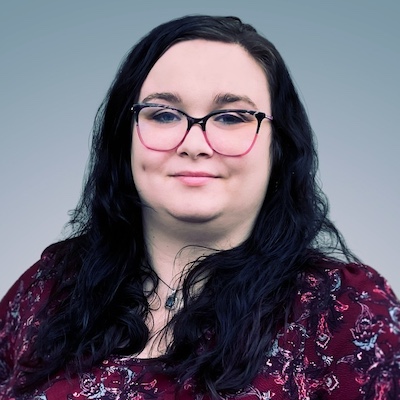Are you looking to make an impact in education using data?
The Master of Science in Educational Psychology – Learning Analytics program at UW–Madison is a fully online and skills-based degree designed for working professionals. Offered through the nation’s No. 1-ranked Department of Educational Psychology, the program is led by world-class faculty who give students the skills and tools to use data to help improve educational outcomes in a range of learning environments.
Participants also collaborate with students in their program cohort and build vital professional relationships.

Following is a Q&A with Carleigh Young, a student with the Learning Analytics master’s program (LAMP) who plans to graduate in the spring of 2025. Young previously earned an undergraduate degree in data analytics from Southern New Hampshire University.
How did you become interested in pursuing a master’s in learning analytics?
Young: I enjoy working in systems technology and am passionate about improving higher education from a technology perspective, especially, but in general as well. I was a first-generation student when I first attempted college and didn’t do well. But since then I have been able to see the impact higher education/continuing education can have.
How did you decide that UW-Madison was the right place to pursue this degree?
Young: Honestly, it was the first time I met with Learning Analytics program director Julia Rutledge. It was clearly a close community despite the asynchronous online environment. I already felt welcome and a part of the community and ended up not even bothering to apply to the other similar programs I was looking at (University of Texas at Arlington and Carnegie Mellon were the primary candidates at the time).
What has been your most meaningful experience with the Learning Analytics program?
Young: If I had to pinpoint a specific type of action — other than that first meeting with Dr. Rutledge that sold me on the program — I would say the fact that in each course I’ve been able to incorporate my own professional and personal activities and experiences. This has let me ensure I was able to understand the material in a way that was directly applicable to my work and goals. There were some data sets that were provided as part of the course curriculum, and while I did work with those as well the professors allowing me to branch into doing the assignments with my own, or ones relevant to my endeavors, helped me to feel connected with the work. This exponentially improved my ability to understand the material and to come up with new ideas and perspectives on how to work with the data.
What class or professor had the greatest impact on you, and why?
Young: Dr. Rutledge — which I know is a bit unfair to the other professors, so I’ll note that. But Dr. Rutledge is the most compassionate, thoughtful, and encouraging individual I’ve ever met. Her perspectives as I’ve been trying to pick PhD programs, or get help as I work toward my insane list of goals, is invaluable. She always gives wonderful advice and helps to introduce me to individuals who can also help answer questions and provide guidance. Her perspectives on academia and the content we covered in the thinking and learning class are also incredibly insightful and have helped me to push the boundaries of how I understand learning.
Other than Dr. Rutledge I would say Dr. Kelsey Schenck and her Foundations in Quantitative and Qualitative Research Methods course. Dr. Schenck really knocked that course out of the park, not only with it being a crash course on two very distinct and complex methods, but also with myself in that even though I had extensive experience — comparatively for what was expected coming into the course/program — that I wasn’t bored or felt like I wasn’t getting anything out of it. Again, I was able to use personal choice methods for my final reports (I did provide reasoning in my letter write up for it) but also the feedback provided by her and the TA (which the TA should get a shout-out, too) that made me think of other ways to manipulate and analyze the data.
What are your future goals or plans?
Young: I just recently accepted a dream role (for this stage of my career) as a learning analytics engineer for Uniformed Services University. I landed this job without having to interview or apply because a recruiter reached out to me and the hiring team saw I was doing this program and were sold on hiring me.
I also have decided to apply to UW–Madison’s PhD in Educational Psychology: Quantitative Methods program as well as to the dual PhD Learning and Computer Science program at Northwestern University.
In the future I would also like to write a textbook about data in education; a sci-fi novel; and a memoir. And, ultimately, I would like to be an industry leader in digital transformation and institutional effectiveness in higher education. I may also want to try to be the president of an institution or transition into a political office that’s directly tied to supporting education when I get to that point in my life.